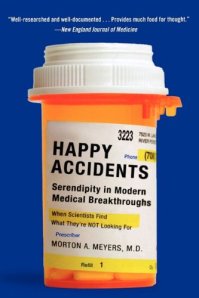 January
28
January
28
Tags
A Tale of Serendipity
 On the 28th of January 1754, in a letter to Horace Mann, eighteenth-century English author Horace Walpole coined the word serendipity in the English language: “I once read a silly fairy tale, called The Three Princes of Serendip [the ancient name for Ceylon, or Sri Lanka]: as their Highnesses travelled, they were always making discoveries, by accidents and sagacity, of things which they were not in quest of: for instance, one of them discovered that a mule blind of the right eye had travelled the same road lately, because the grass was eaten only on the left side, where it was worse than on the right? Now do you understand Serendipity?” In its current usage, serendipity means a fortuitous discovery, a positive chance happening.
On the 28th of January 1754, in a letter to Horace Mann, eighteenth-century English author Horace Walpole coined the word serendipity in the English language: “I once read a silly fairy tale, called The Three Princes of Serendip [the ancient name for Ceylon, or Sri Lanka]: as their Highnesses travelled, they were always making discoveries, by accidents and sagacity, of things which they were not in quest of: for instance, one of them discovered that a mule blind of the right eye had travelled the same road lately, because the grass was eaten only on the left side, where it was worse than on the right? Now do you understand Serendipity?” In its current usage, serendipity means a fortuitous discovery, a positive chance happening.
In 1958, American sociologists Robert K. Merton and Elinor Barber wrote a very interesting book – shelved for forty years, and only printed in 2006 – entitled The Travels and Adventures of Serendipity: A Study in Sociological Semantics and the Sociology of Science, in which they endeavoured to trace the travels of serendipity in various literary traditions and publications; in it, they described the changing meanings of serendipity and examined its history. “The word has an embedded narrative. Around that narrative of chance cognitive success or progress coagulate all the magical responses to uncertainty of personal agency: talent or genius, luck, the obduracy of tradition, the ecstasy of sudden illumination, the value of training of the prepared mind, and playfulness as a basis for originality. This gathering of magic produced, before the word existed, a multiplicity of fairy tales of chance discovery, including the original one about Sri Lankan princes that Horace Walpole used in inventing the word; it eventually made lucky talented scientists heroes, making the magic of discovery and scientific progress secular.” (Arthur Stinchcombe, book review in American Journal of Sociology, Vol. 111, No. 1, July 2005). In the Victorian times, however, Walpole’s work was not that well received, as there was no place for chance in art and science. Initially it was bibliophiles, antiquarians, authors, literary scholars and lexicographers, who favoured the word serendipity, but eventually, medical humanists, social scientists, applied researchers, and science writers caught on to using it. Since then its meanings have shifted towards popular culture – in the afterword to his book, Merton complains about the ‘Disney’ or rom-com like, emotionally-nuanced, trendy guises of serendipity.
 Its original implications were far from this modern reading of the term. Charles Tilly noted the complex duality of the word: “Did it refer to a canny individual capacity for observation and deduction (which the three Ceylonese princes who pieced together hints about who had preceded them on the road surely possessed)? Or did it identify the value of training and foreknowledge in recognizing clues that most other people would ignore? Individual genius or intellectual discipline? (Charles Tilly, review of The Travels and Adventures of Serendipity by Merton and Barber in Contemporary Sociology, Vol. 34, No. 5, Sep., 2005). In his Poetics, Aristotle identified discovery as the important shift from ignorance to knowledge, an awful or wonderful unravelling of something that had not been evident before. Barber and Merton dwell on this idea, but they question the dramatic effect of serendipity in science, as opposed to the way Aristotle wrote about it in tragedies.
Its original implications were far from this modern reading of the term. Charles Tilly noted the complex duality of the word: “Did it refer to a canny individual capacity for observation and deduction (which the three Ceylonese princes who pieced together hints about who had preceded them on the road surely possessed)? Or did it identify the value of training and foreknowledge in recognizing clues that most other people would ignore? Individual genius or intellectual discipline? (Charles Tilly, review of The Travels and Adventures of Serendipity by Merton and Barber in Contemporary Sociology, Vol. 34, No. 5, Sep., 2005). In his Poetics, Aristotle identified discovery as the important shift from ignorance to knowledge, an awful or wonderful unravelling of something that had not been evident before. Barber and Merton dwell on this idea, but they question the dramatic effect of serendipity in science, as opposed to the way Aristotle wrote about it in tragedies.
For a thorough analysis of the word in areas of knowledge, Morton A. Meyers’ Happy Accidents: Serendipity in Modern Medical Breakthroughs (2007) shows that even in scientific disciplines things rarely go as expected. Unsuccessful experiments are often abandoned, and results are engineered in such a way that the end result reads as logically coherent and satisfyingly innovative. W. F. Bynum wrote, “It is no news that science is messy. Louis Pasteur said it most famously: “Chance favours the prepared mind.” His compatriot the physiologist Claude Bernard chipped in with: “Experimental ideas are often born by chance”. The role of chance in the discovery of antibiotics, anticancer drugs, cardiovascular innovations, and psychopharmacology are all discussed by Meyers.
 “The familiar examples are all here: Fleming’s exposed petri dish leading ultimately to penicillin; Waksman’s work with soil bacteria that turned up streptomycin; the road from nitrogen mustard gas to cancer chemotherapy or from spoiled clover to coumarin (…) Nearly all of the physical treatments in psychiatry seem to have been stumbled on – chemically and electrically induced shock, lobotomy, lithium, chlorpromazine, mephenesin, monoamine oxidase inhibitors, tricyclica ntidepressants, fluoxetine, chlordiazepoxide, diazepam, disulfiram, and LSD. ” (W. F. Bynum, review of Happy Accident… by M. A. Meyers, in British Medical Journal, Vol. 335, No. 7630, Dec. 1, 2007). However different in weight, tone or impact, there is a place for serendipity in disciplines poles apart, from poetry to hard factual science.
“The familiar examples are all here: Fleming’s exposed petri dish leading ultimately to penicillin; Waksman’s work with soil bacteria that turned up streptomycin; the road from nitrogen mustard gas to cancer chemotherapy or from spoiled clover to coumarin (…) Nearly all of the physical treatments in psychiatry seem to have been stumbled on – chemically and electrically induced shock, lobotomy, lithium, chlorpromazine, mephenesin, monoamine oxidase inhibitors, tricyclica ntidepressants, fluoxetine, chlordiazepoxide, diazepam, disulfiram, and LSD. ” (W. F. Bynum, review of Happy Accident… by M. A. Meyers, in British Medical Journal, Vol. 335, No. 7630, Dec. 1, 2007). However different in weight, tone or impact, there is a place for serendipity in disciplines poles apart, from poetry to hard factual science.










Reblogged this on CrashCourse.
LikeLiked by 1 person
thanks for that – I’ve learned something…
LikeLiked by 1 person
Reblogged this on beyondtheflow and commented:
Being quite a fan of serendipity, I found this post very interesting! xx Rowena
LikeLiked by 1 person
A very interesting post. Thank you. I didn’t know any of this.
LikeLiked by 1 person
I loved reading this. Learned a lot. I’m a big fan of serendipity.
LikeLike
I serendipitously came across this blog post, and for that I am delighted. Thank you for the great read!
LikeLike